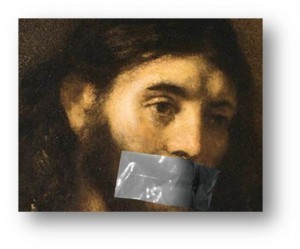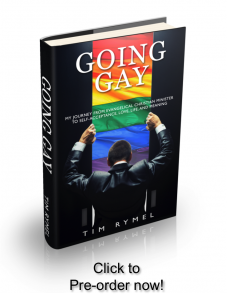Tim Rymel's Blog, page 23
February 21, 2014
Why are the Christians silent?
 In 2001 Americans watched in horror as our country was attacked by Muslim extremists. Most of us didn’t know much about the Muslim religion, but our introduction by violence and death certainly didn’t make a good first impression. For years, I believed that all Muslims were extremists and I said so. In fact, one friend finally told me that my sweeping generalizations made me sound stupid and uneducated.
In 2001 Americans watched in horror as our country was attacked by Muslim extremists. Most of us didn’t know much about the Muslim religion, but our introduction by violence and death certainly didn’t make a good first impression. For years, I believed that all Muslims were extremists and I said so. In fact, one friend finally told me that my sweeping generalizations made me sound stupid and uneducated.
The biggest impact on my belief wasn’t simply what happened on 9/11, it was the silence of the general Muslim community following the attacks that made me believe they stood in agreement with those vicious terrorists.
Recently there have been bills introduced in a number of states that allow people of faith – particularly the Evangelical Christian community – to refuse service to those they believe are homosexuals, or hold values that offend their religious beliefs. In Uganda, Christian right extremists backed a bill that not only discriminates against homosexuals, but ensures prison sentences and allows for public humiliation.
I’d like to believe there are those on the Christian right who take issue with the discrimination and torture of these individuals, but like the Muslim extremists, so far they have remained silent. In my 25 years in ministry in the evangelical church I met genuine, loving people, or so I thought. Where are they now?
My Facebook friends list consists of people who are pastors, leaders and members of the evangelical community, people with whom I served so closely I considered family. I read their political posts, and mostly agree with their points of view. I get it. Government is too big, special interest has taken over the court system, morality is shoved down our throats by the liberal media. If we share an opinion that isn’t politically correct we’re likely to receive backlash, lose a television show, and be mob-lynched by left-leaning journalists.
But we’re not talking about politics, ideals, theology or doctrine here. We’re talking about human lives, the precious souls of which Christ died to redeem, as you and I passionately preached in our time together. Are these not the same people Jesus stood against his pharisaical counterparts to protect? Did he ever ask or make judgments about their moral choices before he fed, healed or spoke to them? Was he ever concerned about their sexual preferences, practices or politics? The answer is clearly no.
Christians have scratched their heads wondering why the LGBT community is so hostile towards them. Perhaps it’s not what is said as much as what is not said. What is more important at this time in our history? Winning a political victory in which “God’s law” oppresses and humiliates a segment of the population with which you disagree, or reaching out to “your enemy” with compassion, humility and simple human dignity. Though it’s an often over-used question, I must ask: What would Jesus do?
Share your thoughts and experiences in the comments section below.
Tim
Hire Tim to speak at your event
 Tags: anti-gay legislation, Arizona, Kansas, Tennessee, Uganda
Tags: anti-gay legislation, Arizona, Kansas, Tennessee, UgandaDel.icio.us


TweetThis

Digg

StumbleUpon

Comments: 0 (Zero), Be the first to leave a reply!You might be interested in this:
 Sin, Shame and the Ex-gay
Sin, Shame and the Ex-gay In Defense of the Ex-gay Movement
In Defense of the Ex-gay Movement Churchianity
Churchianity A Message Worth Repeating
A Message Worth Repeating Book Review - Torn: Rescuing the Gospel from the Gays-vs.-Christians DebateCopyright © Tim Rymel [Why are the Christians silent?], All Right Reserved. 2014.
Book Review - Torn: Rescuing the Gospel from the Gays-vs.-Christians DebateCopyright © Tim Rymel [Why are the Christians silent?], All Right Reserved. 2014.The post Why are the Christians silent? appeared first on Tim Rymel.
February 7, 2014
Why is Life so Hard?!
 “I woke up at 7:20,” my daughter complained as she got in the car this morning for school. “My hair’s a mess, my contacts sting and now I just hurt myself with my own mascara brush.”
“I woke up at 7:20,” my daughter complained as she got in the car this morning for school. “My hair’s a mess, my contacts sting and now I just hurt myself with my own mascara brush.”
Why women wield pointy tools around their eyes in a moving car is inexplicable to me.
A bad morning doesn’t constitute a bad life, but there are days when it feels like it’s just one more thing that points out the obvious: life is harder than it’s supposed to be. We may feel like we’ve chosen the wrong career path, married the wrong person, live in the wrong neighborhood, or were dealt a childhood that just wasn’t fair. Then, when the copier jams or the printer runs out of ink when we’re in a hurry… Well, we reason, it’s the universe saying out loud, “You’re a loser.”
I think back often on my ex-gay life, especially now with such a different perspective. Sometimes I feel I wasted years believing something that wasn’t true. I’m not going to lie; I still feel a tinge of bitterness, but I don’t dwell on it. I have a lot to be grateful for: two daughters, whom I adore, and the love and support of family and friends. I could spend a lot of time on the “what if’s,” but that’s not going to change the past, it only takes away from the blessings of the present.
Life feels harder than it needs to be because, one, resistance builds character like working out develops stamina, and two, sometimes our belief systems go against the very forces of nature. It’s difficult to tell which is which and thus, hard to know when to fight and when to let go.
Our perception is finite. The faster we come to the conclusion that we don’t have all the answers and we don’t know all truth, relieves us of the responsibility to single-handedly solve our own problems. We need people, and not necessarily those who believe the way we do. We need to be challenged, as uncomfortable as it feels. Someone recently told me I was digging myself into a hole, using the same metaphorical shovel I’d used all my life to get out of it. My shovel isn’t working anymore and I have to learn to use new tools if I want to see different results. I couldn’t have seen that on my own.
I’m coming to believe that the struggle in life is less about right and wrong, and more about human connectedness. Think about it. When you feel like a failure, or when life is most difficult, are you more or less connected to people? Do they challenge you to do better, or keep you in your rut? It may be time to meet new people, or connect with the ones already there. The right people may indeed surround us, but our lack of vulnerability keeps us from connecting with them in a meaningful way.
If, however, you find yourself connected to others and still feel like you’re fighting an unwinnable, uphill battle, it may be time to cut your losses and move on. Our belief systems – religious, political and cultural – build a box in which most, or all, of our actions, attitudes and decisions are made. Sometimes, reality just doesn’t fit in the box. We make compromises, live in secret, or go into denial to avoid facing that reality and tell ourselves it’s for the greater good. Then we ask in desperation, why is life so hard?
Lack of authenticity and vulnerability builds a façade, which requires an enormous amount of energy to keep up. We simply don’t have time to focus on relationships that lead to the contentment and security we truly desire.
Share your thoughts and experiences in the comments section below.
Tim
Hire Tim to speak at your event
 Tags:
Tags: Del.icio.us


TweetThis

Digg

StumbleUpon

Comments: 0 (Zero), Be the first to leave a reply!You might be interested in this:
 In Defense of the Ex-gay Movement
In Defense of the Ex-gay Movement Can You Show Compassion without Compromise?
Can You Show Compassion without Compromise? Truth or Dare (to Love)
Truth or Dare (to Love) Untangling the Tangled Mess
Untangling the Tangled Mess Yes on Prop 8 - Mis-stepping into the gay communityCopyright © Tim Rymel [Why is Life so Hard?!], All Right Reserved. 2014.
Yes on Prop 8 - Mis-stepping into the gay communityCopyright © Tim Rymel [Why is Life so Hard?!], All Right Reserved. 2014.The post Why is Life so Hard?! appeared first on Tim Rymel.




